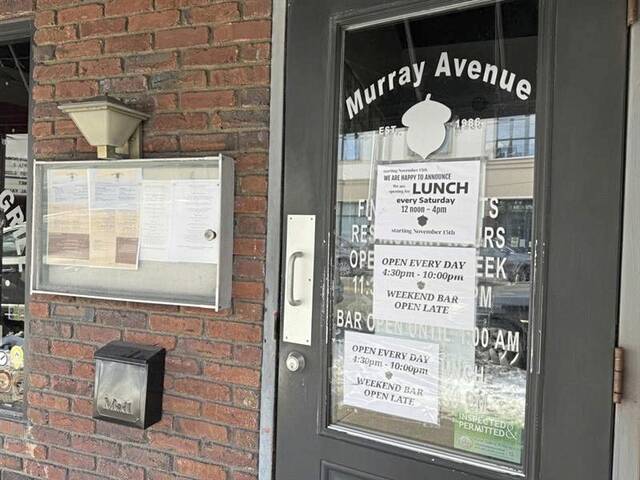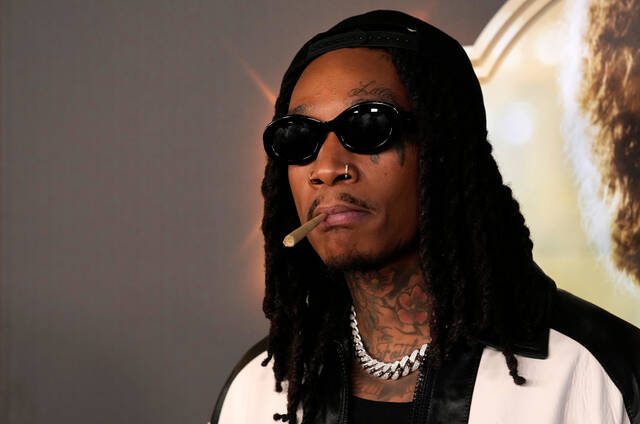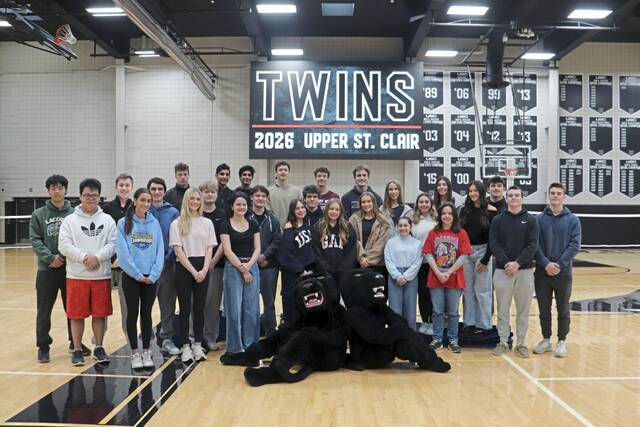Community members have said that Steel Valley School District and Barrett Elementary have some of the best Black History Month programming for students. On Thursday, the district hosted its fifth celebration since 2019, featuring its Black History Month Living Interactive Museum.
Students displayed their artwork, and some students and community members dressed up as notable figures in African American history and culture, including Malcolm X, Martin Luther King Jr. and Phillis Wheatley.
University of Pittsburgh professor Shallegra Moye had an exhibit for the second year, focusing on the art and sound of the Black Power Movement. “It’s really about focusing our beauty on our industriousness and our collective energy for change,” Moye said. “The Black Power Movement was so full of life for visual art, literary arts, dramatic arts and of course, sound.”
This semester, Moye is teaching a course about Black Power Movements in the U.S. and abroad. “Music and art — we can see it and hear it and relate to it immediately,” Moye said, adding that she wanted to bring that to the students of Barrett.
Jonette Bost, a second-grade teacher, is the driving force behind the project.
“I thought, what if the students in the Steel Valley … by the time they graduate, they are somebody that knows about their culture, their experiences and their history,” Bost said.
For the first iteration of the celebration in 2019, there was limited support and she used her tax return to fund the event.
“It was a lot of hard work, sleepless nights, and never taking no for an answer,” Bost said.
Bost is white and considers herself a collaborator. “We are ready to be a game changer,” she said.
Each year, the celebration got bigger. Bost began writing grants, reached out to all the Historically Black Colleges and Universities through a campaign, and got resources donated. Each connection led to another. They’ve had a soul food kitchen with different chefs that they either knew or got connected to, and the Pittsburgh Cultural Trust designed t-shirts for Black History Month, which they sell to help fund the event.
The celebration also showcased Black and Brown-owned businesses like Diondre Faulk’s Faulk Studio, a photography business, and Nate Mosley’s tutoring company Mosley Tutoring Sessions. Students also had to the opportunity to see live drumming from Balafon West African Dance Ensemble and learned about quilt making.
“The event has been amazing — so many different history makers were showcased. The kids were able to see all the people who came before them, minorities and African Americans. It is a great event for kids,” said Yasmin Shaheed, a success coach at Barrett Elementary.
Bonita Lee Penn portrayed Phillis Wheatley. Like Wheatley, Penn is a poet. “It is very important to share history with the young children, especially at this age. When I was young we never had anything like this,” she said. “I am just so thrilled to be able to share with them.”
She spoke to students about who Wheatley was and the work she did as an author and poet. It wasn’t too far off from Penn’s own profession, as she teaches a poetry workshop at Carlow University.
“Poetry is about sharing your life with people, letting people know who you are,” she said.
Students crowded around Shuri and T’Challa from the comic book and movie “Black Panther” to take photos. The superheroes were played by two students.
“Recognizing all the Black people who have done things, and what they do and to know that we are here too, we do a lot of different things, there’s a of things to celebrate, is incredible,” said 17-year-old senior Shatyra Parker, who portrayed Shuri.
“It is really important to acknowledge all the Black trailblazers that have come before us just so we could reach this point, but also it is important to Black characters and in TV and movies so we can have that representation,” said Pe’Shince McCarrell, a 17-year-old senior who played T’Challa. “Being a little kid, or a little Black girl looking at princess movies and thinking ‘Oh I want that, but I don’t look like that, so that can’t be me,’ I think being able to say I can do that and be that too if I want to and if I try because I see other people who look like me doing it, is what made today so important.”















